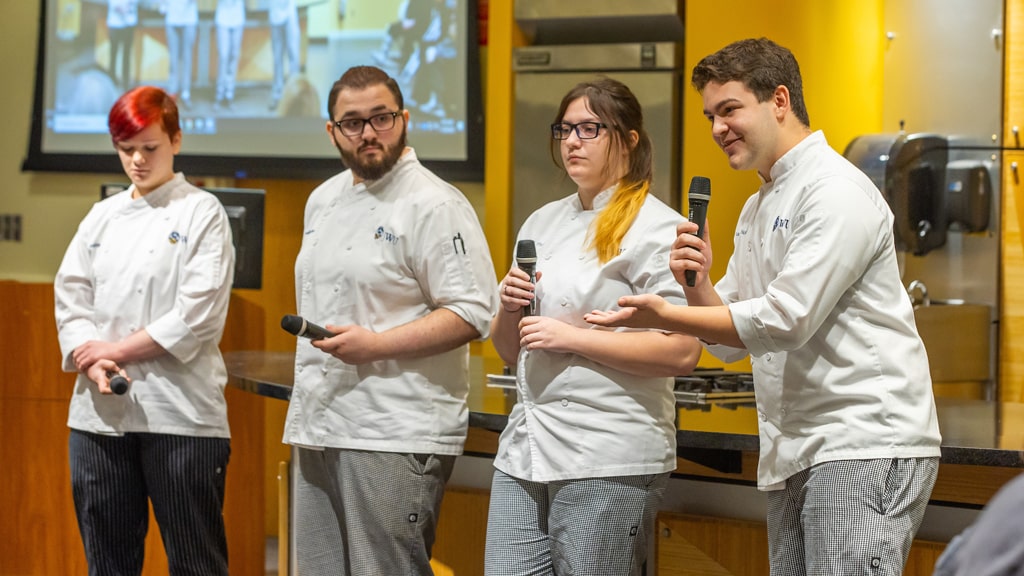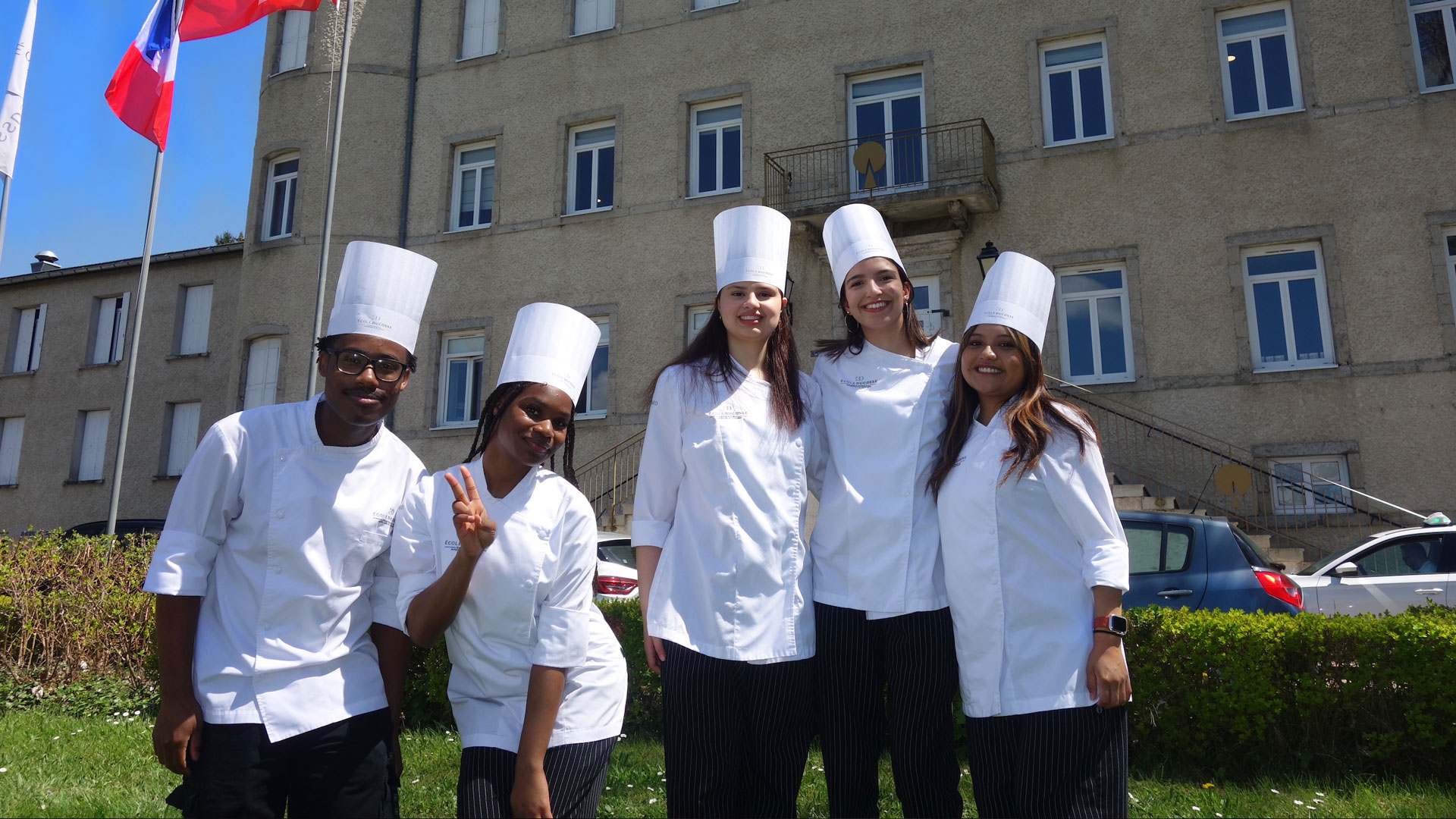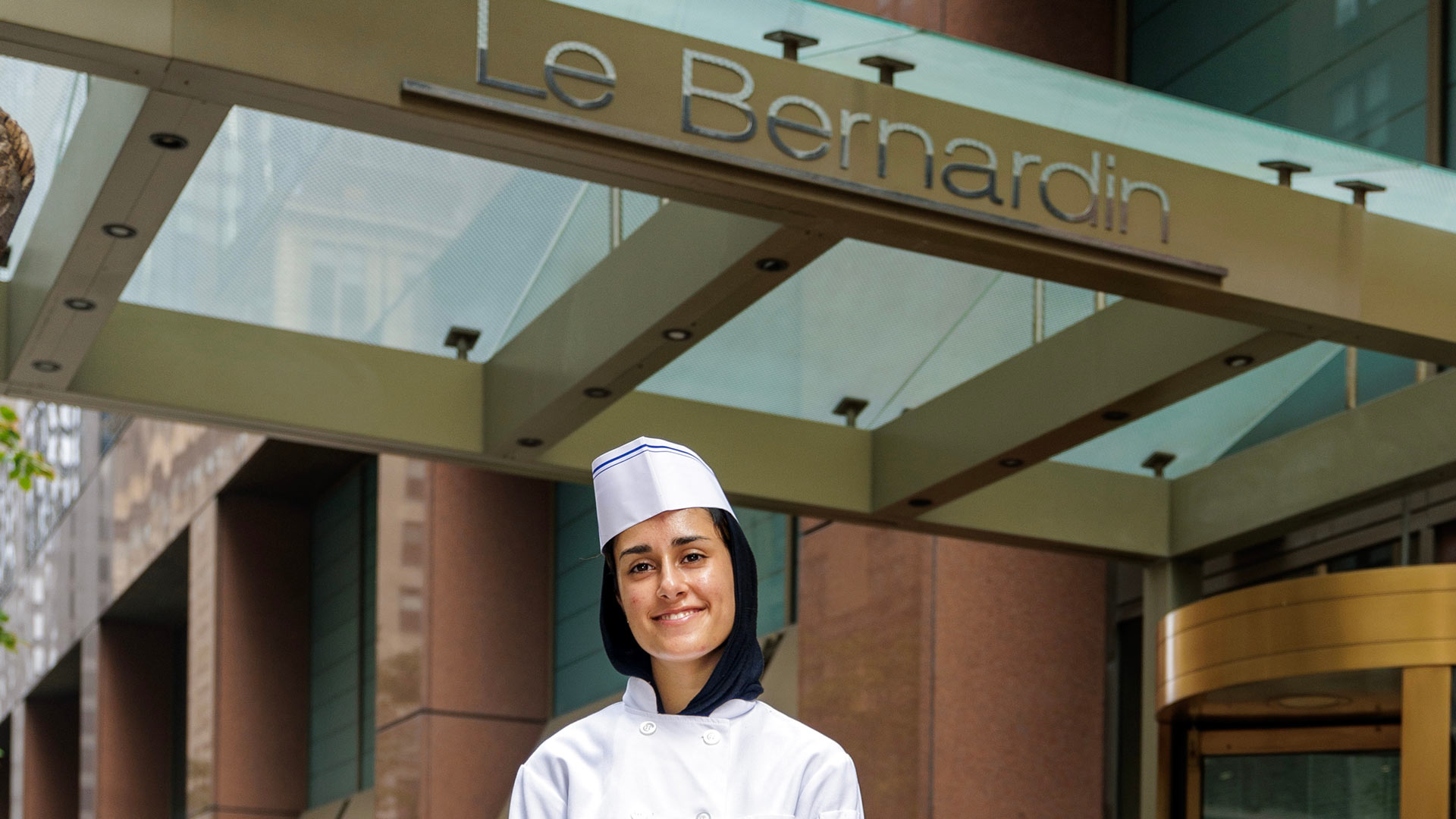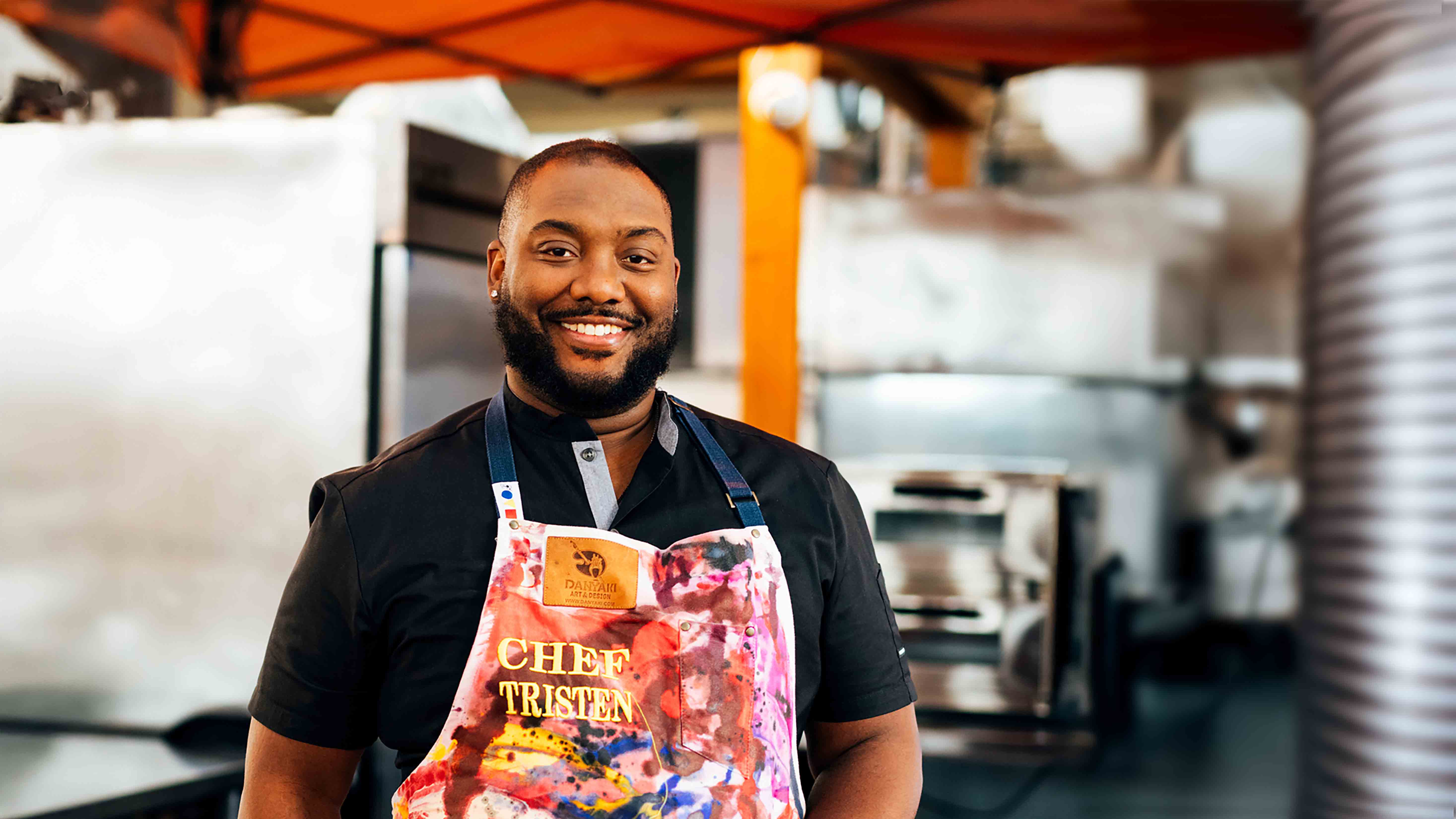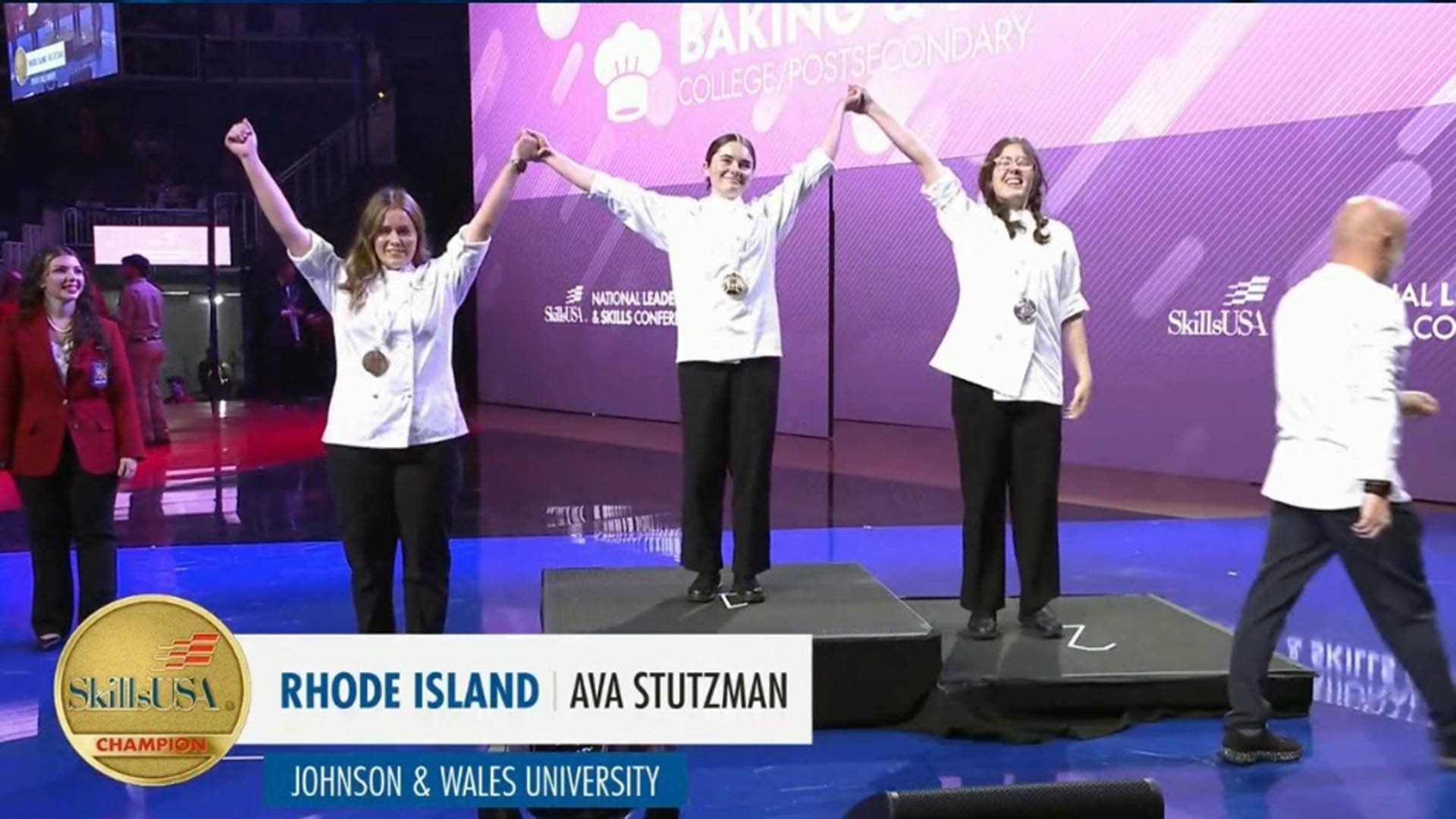JWU and the New Food Education
Dean Jason Evans wrote a recent essay for FSR titled Why a Culinary Education Still Matters, which opened with the question, “Is there a more natural core around which to build lessons in history, culture, art, science, and anthropology than food?” Here he expands upon his initial thoughts:
Food is universal to the human experience, and it’s far more than just fuel; it can be a foundation for a better life. And becoming a professional devoted to food means understanding its complex relationship not just to our bodies but to culture, policy, and global systems — and not being afraid to tackle big questions with visionary solutions.
“So much of our quality of life is driven by our food choices, and this gives the food professionals we graduate significant efficacy and power to change the world.”
In 2020, Johnson & Wales University took the bold step to rebrand its College of Culinary Arts (CCA) to the College of Food Innovation & Technology (CFIT). This change was not undertaken lightly but was done to reflect the significant changes happening in the food world and at JWU. For roughly 10 years before the name change, JWU had steadily expanded its culinary programs in breadth and scope; more broadly, the university’s programming was becoming more interdisciplinary and focused on sustainable practices. This increased focus on how food shapes our lives, culture, and future necessitated a change in approach.
In recent years, JWU’s culinary curriculum has expanded to encompass classes focused on sustainability and sourcing; nutrition and wellness; food history, writing, and culture; food policy; sustainability and how it is linked to food networks; and so on. (This idea loops back to the college’s change of name — “culinary arts” is far too narrow in scope for what is needed in culinary education of tomorrow.)
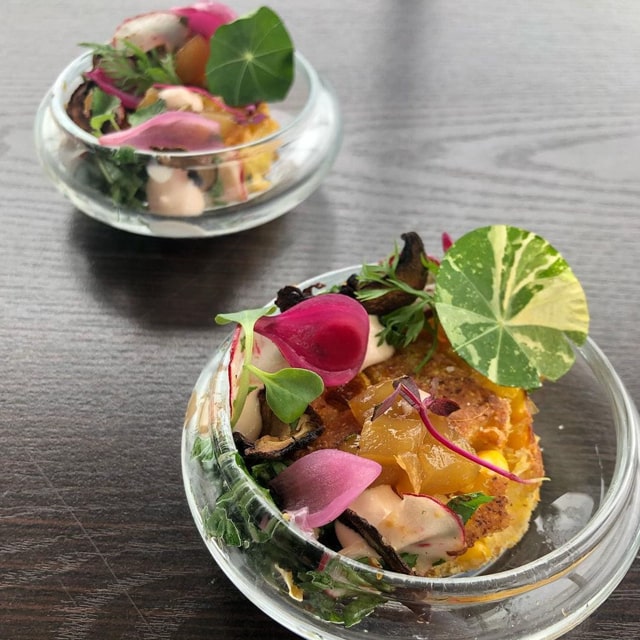
At the same time, we were seeing drastic changes in food consumer behavior. Demand for healthy, nutritious, affordable and sustainably sourced food grew. So was an awareness of the direct links between food and health — the idea of food as “preventive medicine” and a foundation for overall wellness.
Just a few examples of the rapid, widespread changes that have occurred in our grocery stores include the whole nutrition/protein/meal replacement bar aisle (now ubiquitous when it used to be a staple of health food stores only); similarly, even small grocery stores now carry a wide range of allergen substitutes, plant milk, and veggie meats.
So much of our quality of life is driven by our food choices, and this gives the food professionals we graduate significant efficacy and power to change the world. Rethinking culinary education needs to come from a place that considers these crucial connections and looks at how food can improve our lives.
“The university’s immersive approach to education helps students construct their own worldviews, appreciate the value of lifelong learning, and determine what’s important to them.”
These new products and delivery modalities represent complex food/packaging science and logistical challenges. Getting them to market will require the type of multidisciplinary teams CFIT trains; our graduates leave JWU prepared to innovate, drawing on their world-class training in culinary and nutrition fundamentals, business and food entrepreneurship foundation, and intellectual curiosity buoyed by a comprehensive liberal arts education.
A hands-on, lab-based curriculum remains central to our approach — a necessary component of a broad-based education that encourages interdisciplinary collaboration across all of JWU’s colleges. Putting learning into action — and gaining perspective outside one’s major — is part of JWU’s educational DNA. And when you visit CFIT labs, it quickly becomes apparent that JWU students are problem-solvers who know how to think on their feet, with a sense of professionalism, focus, and creative drive. The university’s holistic, immersive approach to education helps them construct their own worldviews, appreciate the value of lifelong learning, and determine what’s important to them.
Exposing our students to new perspectives is a significant part of this educational commitment.
There are many ways to collaborate with other JWU colleges, from menu design and product design projects with the College of Engineering & Design to working with Occupational Therapy Doctorate (OTD) students to create healthy versions of comfort food favorites, like macaroni and cheese. Our culinary students have even designed snacks for TD Garden’s members-only lounge, Legends. Regarding the value of collaboration, OTD student Leila Schaper said, “I think it is important to be exposed to other professions because you rarely work alone, and being able to communicate effectively with different professions is a crucial skill.”
Students can expand their horizons through opportunities to study abroad and/or intern in countries like Italy, Australia, Germany, and Nepal (to name a few) and through guest lectures, documentary screenings, and other enriching cultural programming on campus.
CFIT hosts a wide range of culinary leaders, most recently Chef Sean Sherman, the founder/CEO of the Sioux Chef, who outlined ways to think about decolonizing menus. The 3rd annual FIT Symposium is coming up in March, as is a visit from James Beard Award winner Eric Ripert, whose restaurant Le Bernardin just received ✩ ✩ ✩ ✩ from the New York Times’ chief critic, Pete Wells.
Each of these components illustrates the holistic approach called for by CFIT’s commitment to shaping the professionals who change how people eat and think about food.
Learn more about JWU’s culinary degree program offerings in the College of Food Innovation and Technology:
TOP: CULINARY NUTRITION STUDENTS CREATING A MULTI-COURSE MENU FOR THE JWU MEN’S TENNIS TEAM. MIDDLE: JOHNNY CAKE WITH BRANDIED APPLES BY CHANTELLE GONSALVES '23 & MADISON CHAMBERLAIN '23. BELOW: GROUP PROJECT PRESENTATION DURING THE FUTURE FOOD ALL-STARS COMPETITION (2022).
